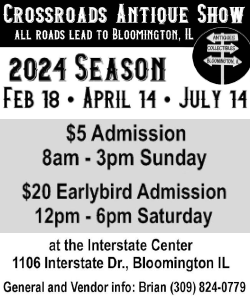|
 For
lack of support from an absentee father, Mom moved us to into the
‘projects’ in 1956 where we lived the four years prior to her
passing. At the time Longview Place in Decatur, Illinois was
segregated: blacks living on the east side and whites on the west.
Separating the races were two cyclone fences running parallel the
width of the housing complex with multiple train tracks in between. For
lack of support from an absentee father, Mom moved us to into the
‘projects’ in 1956 where we lived the four years prior to her
passing. At the time Longview Place in Decatur, Illinois was
segregated: blacks living on the east side and whites on the west.
Separating the races were two cyclone fences running parallel the
width of the housing complex with multiple train tracks in between.
When the U.S. Supreme Court ruled in favor of the plaintiffs in
Brown v. Board of Education in 1954 mandating public school
integration begin with all speed, most states complied. The Southern
region though was a different breed of animal as various state,
county and municipal governing bodies dragged their feet, utilizing
every trick up their sleeves to impede the abolition of ‘equal but
separate’ Jim Crow laws.
That same year, Dr. Martin Luther King Jr. became the minister for a
Baptist church in Montgomery, Alabama, and with his arrival on the
scene black folks’ long struggle for equality and social justice got
a shot of adrenaline. At this juncture, Dr. King could’ve rightly
quoted President Lincoln: “I did not bring about the present
conflict tearing at the heart of this nation, but the present
conflict has brought me to where I am now dedicated to righting the
wrongs dividing our house.”

By the time I started junior high school in Decatur,
Centennial was fully integrated; in fact blacks held a slight
majority. And on the day before Abraham Lincoln’s birthday our 7th
grade history teacher, Mrs. Brown, announced, “In honor of our 16th
president’s birthday tomorrow each of you will be required to recite
The Gettysburg Address.”
I recall what happened next as though it were yesterday: the entire
class let go a collective groan. Had she dropped a stun bomb the
class couldn’t have been more shocked. Someone dared question the
short notice, to which our petite, African-American schoolmarm
informed us we’d been told of the assignment at the beginning of the
new term, which resulted in a few of us, including me, exclaiming,
‘Huh?’ No one in class recalled having been given the task, and to
this day I honestly believe Mrs. Brown’s memory failed her on that
occasion.
Be that as it may, bending to the task that evening and well into
the night and
early morning hours, I finally succeeded in planting those 271
immortal words in my brain, which couldn’t have been accomplished
without mom’s help. That she was sick and had to clock in at seven
at the sweatshop where she slaved as a seamstress epitomizes the
sacrifices parents make to see their children succeed. I dared not
go to sleep for fear of loosing it—the address that is.
Come seven-thirty, I dragged my weary body the mile to school, which
abutted the eastern boundary of the projects. Throughout morning
classes, I kept mentally reciting those words, which by then had
given me one terrible headache. (It’s humbling to think about the
headaches endured by him who had penned that immortal address.)
When Mrs. Brown arrived carrying her signature carpetbag, she
greeted us in her usual manner, “Good morning children.” Then, while
retrieving a box of chocolate bars from her carryall and placing it
on the front of her desktop, she said. “Is everyone ready to
recite?” An alien silence ensued.
[to top of second column] |

Starting alphabetically, she called the first
student: “I can’t do it.” The second simply shrugged. On and on Mrs.
Brown called roll. Not a soul stood to recite until this black kid,
Ben Cooper drilled it. Following Ben no one was up to the task until
Henry Dews was called. I recited perfectly.
Mrs. Brown finished roll call with nary another nibble. Then after
summoning me and Ben to the front of the class, she said, “I had
intended to give each student fulfilling the requirement a chocolate
bar,” whereupon, quite deliberately, she divvied the sweets between
the two of us. While relishing my reward, I scanned the class:
two-dozen pairs of eyes were locked on our booty—some filled with
envy, some with loathing. (A Rod McKuen quote seems appropriate:
“The mind is such a junkyard it remembers candy bars but not The
Gettysburg Address.”
[Twenty-Five / The Coming of the Rain by Rod McKuen])
After class Ben and I gravitated to one another, and as we walked
down the hall one of our classmates shouted, “There go the chocolate
buddies.” I figured the remark was aimed at those chocolate bars,
but Ben’s sad expression said he’d taken it altogether differently.
Ben and I chummed around the rest of that year and the next.
It was during this period President Eisenhower desegregated public
housing,
and the old man, like countless millions across this “land of the
free” totally against integration, moved of us out of Longview to a
small town with a sundown law.
Time passed and Ben Cooper was relegated to that place where one
files fond memories. But as providence would have it our paths
crossed once again four years later at a freshman mixer at Southern
Illinois University. I don’t recall who saw who first, but after
exchanging greetings Ben said he’d won an athletic scholarship, said
he was on the wrestling team. Shortly into our reunion two of his
buddies strutted up beside him, one of them saying, “Hey Bro,
whatchu talkin’ dat honkey foe?” Before being escorted away his sad
eyes said he was sorry for his friends’ hostility. I couldn’t fault
his loyalty to his brothers for reasons that should be obvious. That
chance encounter with Ben and his friends made me realize those
chain link fences separating blacks and whites were firmly supported
on both sides.

Here in the 21st century the race issue has been
absorbed by yet a bigger issue: ever-widening class division. Some
pundits believe this division into red, blue, and purple regions
‘from sea to shining sea’ is direr than the one President Lincoln
faced. Is there another statesman like our rail-splitter waiting in
the wings to reunite us? One can only hope and pray, but this
individual isn’t holding his breath because congress is suffering
longer and longer bouts of gridlock, leaving ‘government for the
people’ in the hands of self-serving unctuous politicians and
unscrupulous wannabe kings.
Click here to respond to the editor about this
article.
 |